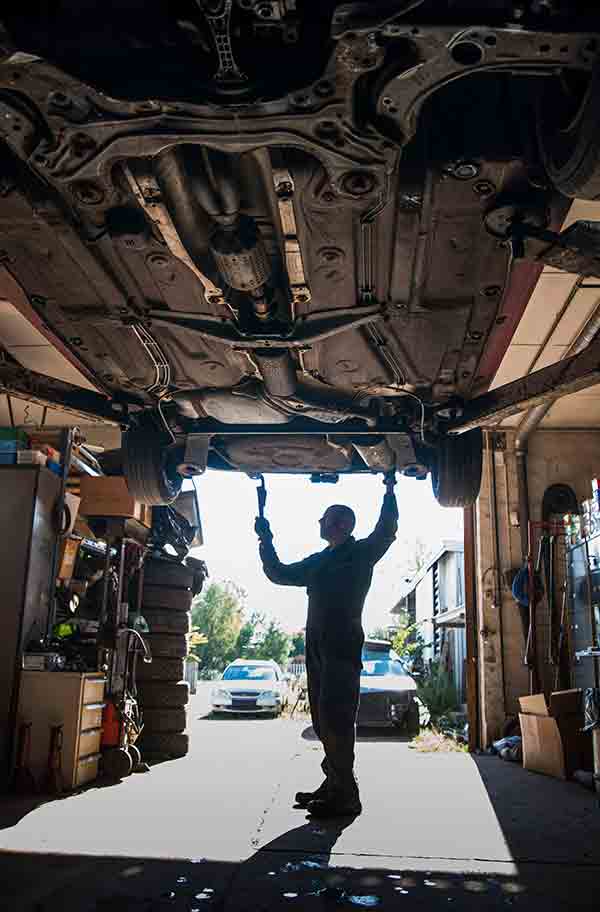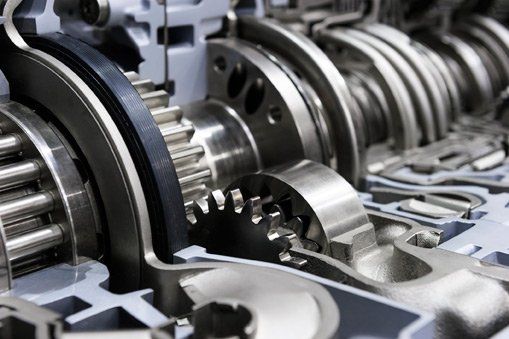
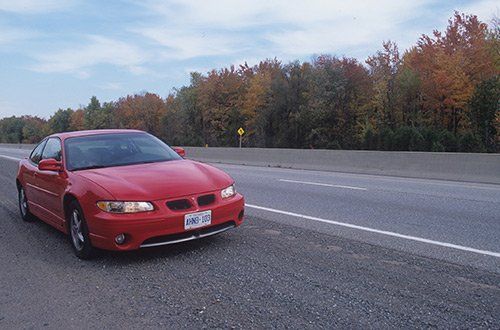
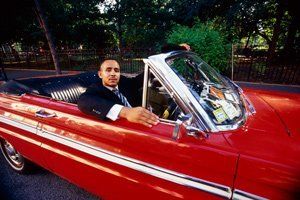
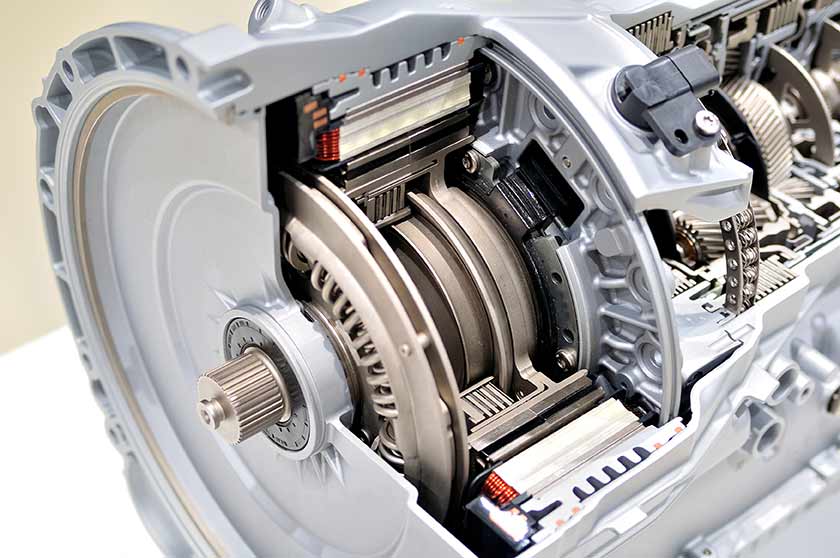
Dual-clutch transmissions were once popular among automobile manufacturers throughout the early 2000s. These transmissions were heralded for their fuel efficiency and improved performance over automatic and manual transmissions.
Despite their initial popularity, dual-clutch transmissions have fallen out of favor with most manufacturers. Nevertheless, there's a good chance you'll encounter one if you purchase a performance-oriented used car. Here’s what you should know about dual-clutch transmissions if you come across one.
Dual-clutch transmissions (DCTs) are a bit different from the average automatic transmission. Just as the name implies, a dual-clutch transmission features two separate clutches. On a typical six-speed dual-clutch gearbox, one clutch handles the odd-numbered set of gears (1st, 3rd, and 5th) while the other clutch handles the even-numbered set of gears (2nd, 4th, and 6th).
Think of a DCT as being two separate manual transmissions located in the same housing. By splitting up the gears in this manner, a DCT can speed up gear changes by preselecting the next gear. DCTs either use a wet clutch setup for high-torque applications or a dry clutch setup for smaller vehicles with lower torque figures.
Since DCTs are essentially automated manual transmissions, there's no need for a torque converter. The transmission instead relies on its electrohydraulics to shift gears. On most applications, drivers can operate their DCT in fully automatic mode or shift gears in "manual" mode via paddle controls located behind the steering wheel.
When it comes to overall performance, dual-clutch transmissions beat their manual and automatic counterparts. Dual-clutch transmissions provide much faster gear changes than even a seasoned driver can achieve with a manual transmission. The ability to make rapid gear shifts with minimal delay makes DCTs ideal for use in sports cars and supercars.
DCTs also offer better fuel efficiency than most automatic or manual transmissions. Since DCTs don't need a mechanically inefficient torque converter for power delivery, a DCT-equipped vehicle doesn't need to use as much fuel as one equipped with a comparable automatic transmission to deliver power to the wheels.
Despite their advantages, dual-clutch transmissions aren't without their problems. The following issues explain why DCTs haven't been as popular as automakers have hoped.
Jerky Operation
Jerky, hesitant operation is one of the most common complaints drivers have with their dual-clutch transmissions. Such hesitation is usually felt when pulling away from a stop or while traveling at low speeds. DCTs can also lag when a driver needs another gear other than the one preselected by the transmission. The transmission's software needs time to select the correct gear, resulting in lag.
Clutch Shudder
Some DCTs are also prone to clutch shudder, especially when shifting from one lower gear to another. On dry-clutch DCTs, input shaft leaks can cause oil to seep into the clutch housing and contaminate the dry clutch surfaces. Clutch shudder can also be caused by any number of internal flaws within the transmission itself.
Fluid Contamination
On DCTs with a wet clutch setup, the clutch plates can deposit worn clutch material into the transmission oil. For this reason, wet-clutch DCTs need oil changes more frequently than comparable automatic transmissions. If the oil isn't changed on a regular basis, the ongoing contamination can cause overheating and other performance problems.
Park/Neutral Switch Problems
Certain vehicles might not be able to start due to a faulty park/neutral switch. Communication failures between the switch and the vehicle's powertrain control module can prevent the vehicle from starting even when the vehicle is in park or neutral. Failure of the switch itself can also cause problems.
Any of these issues can signal a bigger problem with your dual-clutch transmission. Fortunately, the experts at All Transmission World can diagnose your issues and make the appropriate repairs or replacements. Give us a call today to take care of your transmission issues.



